
Entertainment
-
 Greece introduces ‘MyCoast’ App to tackle beach violations
In an effort to enforce newly implemented stringent beach regulations, Greece has launched the ‘MyCoast’ app, empowering users to report beach violations effortlessly.03 May 2024Read More...
Greece introduces ‘MyCoast’ App to tackle beach violations
In an effort to enforce newly implemented stringent beach regulations, Greece has launched the ‘MyCoast’ app, empowering users to report beach violations effortlessly.03 May 2024Read More... -
 European Court of Human Rights rejects Kirkorov’s case against Lithuania entry ban
The European Court of Human Rights (ECtHR) has dismissed a complaint filed by Russian pop star Philipp Kirkorov against Lithuania's decision to bar his entry into the country.23 April 2024Read More...
European Court of Human Rights rejects Kirkorov’s case against Lithuania entry ban
The European Court of Human Rights (ECtHR) has dismissed a complaint filed by Russian pop star Philipp Kirkorov against Lithuania's decision to bar his entry into the country.23 April 2024Read More... -
 Risnjak National Park: Croatia's hidden gem wins Europe's top spot
Nestled within Croatia's picturesque Gorski Kotar region, Risnjak National Park emerges as a beacon of untouched beauty, earning recognition as one of Europe's premier destinations sans the23 April 2024Read More...
Risnjak National Park: Croatia's hidden gem wins Europe's top spot
Nestled within Croatia's picturesque Gorski Kotar region, Risnjak National Park emerges as a beacon of untouched beauty, earning recognition as one of Europe's premier destinations sans the23 April 2024Read More... -
 Swiss castles experience record visitor numbers
In 2023, the National Association of Swiss Castles witnessed a historic milestone, welcoming over 1.3 million visitors to its 28 castles. This achievement marks a new record for the organization,23 April 2024Read More...
Swiss castles experience record visitor numbers
In 2023, the National Association of Swiss Castles witnessed a historic milestone, welcoming over 1.3 million visitors to its 28 castles. This achievement marks a new record for the organization,23 April 2024Read More... -
 Underground surge: Belgium grapples with 2,214 illegal gambling websites
Research conducted by gambling analysis firm Yield Sec has unveiled a concerning trend in Belgium's online gambling landscape. According to their findings, a staggering 2,214 illegal gambling14 April 2024Read More...
Underground surge: Belgium grapples with 2,214 illegal gambling websites
Research conducted by gambling analysis firm Yield Sec has unveiled a concerning trend in Belgium's online gambling landscape. According to their findings, a staggering 2,214 illegal gambling14 April 2024Read More... -
 Flanders and Brussels Embrace Slow Art Day, inviting visitors to savor artistic experiences
On April 13th, several museums in Flanders and Brussels will once again host a variety of activities as part of Slow Art Day, an annual tradition aimed at encouraging a deeper12 April 2024Read More...
Flanders and Brussels Embrace Slow Art Day, inviting visitors to savor artistic experiences
On April 13th, several museums in Flanders and Brussels will once again host a variety of activities as part of Slow Art Day, an annual tradition aimed at encouraging a deeper12 April 2024Read More... -
 4 Croatian beaches named Europe’s best
As Croatia gears up for what promises to be its most spectacular summer season yet, the BookRetreats Summer 2024 Report has officially unveiled the top beaches across Europe, catering to10 April 2024Read More...
4 Croatian beaches named Europe’s best
As Croatia gears up for what promises to be its most spectacular summer season yet, the BookRetreats Summer 2024 Report has officially unveiled the top beaches across Europe, catering to10 April 2024Read More...
News
-
 Belgian Princess Elisabeth sets course for Harvard
The Belgian Royal Court has confirmed that Princess Elisabeth, the heir to the throne, will pursue her education at Harvard University in Boston, marking a significant step in herRead More...
Belgian Princess Elisabeth sets course for Harvard
The Belgian Royal Court has confirmed that Princess Elisabeth, the heir to the throne, will pursue her education at Harvard University in Boston, marking a significant step in herRead More... -
 Education unions initiate series of strikes across Flanders
Education unions ACOD Education, COC, and VSOA Education are set to organize demonstrations across five Flemish cities in May as part of a series of strikes. The unions' discontent stemsRead More...
Education unions initiate series of strikes across Flanders
Education unions ACOD Education, COC, and VSOA Education are set to organize demonstrations across five Flemish cities in May as part of a series of strikes. The unions' discontent stemsRead More... -
 Algerian nationals can now be detained prior to deportation, court decides
The highest Dutch court ruled on Monday that Algerian nationals whose asylum requests have been rejected can once again be detained pending their deportation.Read More...
Algerian nationals can now be detained prior to deportation, court decides
The highest Dutch court ruled on Monday that Algerian nationals whose asylum requests have been rejected can once again be detained pending their deportation.Read More... -
 Transfers of asylum seekers to other EU member states increasing
Belgium transferred 1,241 asylum seekers to another European Union member state last year, where they already had a pending procedure. The number of transfers by Belgium has been onRead More...
Transfers of asylum seekers to other EU member states increasing
Belgium transferred 1,241 asylum seekers to another European Union member state last year, where they already had a pending procedure. The number of transfers by Belgium has been onRead More... -
 Polish cheesecake ranked as world's No.1
Polish ‘sernik’ has claimed the top spot on the list of the Top 8 cheesecakes in the world. Cheesecake. Cheesecake. Photo: PAP/Darek Delmanowicz According to TasteAtlas, which curated theRead More...
Polish cheesecake ranked as world's No.1
Polish ‘sernik’ has claimed the top spot on the list of the Top 8 cheesecakes in the world. Cheesecake. Cheesecake. Photo: PAP/Darek Delmanowicz According to TasteAtlas, which curated theRead More... -
 Wealthy family to clear debts for 3,000 Rotterdam families, mirroring Arnhem's initiative
Following Arnhem's announcement to absolve debts for around 50 households in Immerloo, recognized as the most financially distressed area in the Netherlands, a Rotterdam-based family,Read More...
Wealthy family to clear debts for 3,000 Rotterdam families, mirroring Arnhem's initiative
Following Arnhem's announcement to absolve debts for around 50 households in Immerloo, recognized as the most financially distressed area in the Netherlands, a Rotterdam-based family,Read More... -
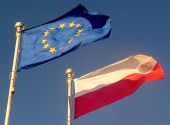 'Good to be together': celebrating 20 years of Poland in the EU
Poland's government has initiated a special social and informational campaign titled "Good to Be Together: 20 Years of Poland in the European Union," marking a significant milestone in theRead More...
'Good to be together': celebrating 20 years of Poland in the EU
Poland's government has initiated a special social and informational campaign titled "Good to Be Together: 20 Years of Poland in the European Union," marking a significant milestone in theRead More... -
 ÖBB unveils Summer Train Timetable with construction updates
As summer approaches, Austria's ÖBB gears up for extensive construction activities in the eastern region, leading to adjustments in train schedules along certain routes.Read More...
ÖBB unveils Summer Train Timetable with construction updates
As summer approaches, Austria's ÖBB gears up for extensive construction activities in the eastern region, leading to adjustments in train schedules along certain routes.Read More... -
 Rare book theft: Europol cracks down on international gang
In a collaborative effort involving European law enforcement agencies, Europol successfully apprehended four suspected individuals involved in the theft of antique and rare books.Read More...
Rare book theft: Europol cracks down on international gang
In a collaborative effort involving European law enforcement agencies, Europol successfully apprehended four suspected individuals involved in the theft of antique and rare books.Read More...

Most Read
- Teen held after US woman killed in London stabbings
- Football: Farhad Moshiri adamant Everton deal above board
- Greece hails new post-bailout chapter but concerns remain
- The Kokorev case caused wide discussion in Brussels
- EU accession talks stir debate in Moldova: insights from Gagauzia's leader, Yevgenia Gutsul
Politics

German Chancellor Angela Merkel on Wednesday threw her weight behind Prime Minister David Cameron's reform demands as EU leaders readied a make-or-break summit on Britain's future in the bloc.
"These are not just about Britain's individual interests on some issues or questions, rather it is about several points that are justified and understandable," Merkel told parliament in Berlin.
Cameron has four key demands -- welfare restrictions to help curb immigration, safeguards for non-euro Britain, increasing competitiveness plus an opt-out from closer EU integration -- and they have all exposed sharp differences over what direction the European Union should take.
Up to now, Merkel, the European Union's undoubted power-broker, has offered polite support with the caveat that any changes must not compromise fundamental EU values and achievements, such as free movement of people.
Now, she said, Germany shared Britain's concerns.
"Like David Cameron, I believe that it is necessary for the EU to improve our competitiveness, transparency and (reduce) bureaucracy. Germany has shared these concerns for many years," she said.

EU officials thrashing out a deal to keep Britain in the bloc want to ring-fence any accord for fear other member states may use it as a precedent to demand changes they want, diplomatic sources said Wednesday.
"This negotiation is meant to be a UK specific exercise and it should stay like that," one of the sources said ahead of a two-day EU leaders summit in Brussels beginning Thursday which will be dominated by the 'Brexit' issue.
"If we extend the possibilities and facilities we are creating now for the UK to other member states, then it is a completely different discussion," said the source, asking not to be named.
Prime Minister David Cameron has demanded four key reforms -- on welfare, the euro single currency, closer EU integration and competitiveness -- in return for backing Britain's continued membership of the bloc.
The key sticking point is his demand that EU citizens working in Britain not be allowed to claim welfare benefits for four years while payments of child support in their home countries should be cut.

Londoners are getting desperate over rising rents, with residents and students taking to the streets and social media over the cramped conditions tenants are forced to accept.
With house-building lagging well behind the population increase in western Europe's biggest city, prices are soaring beyond anything affordable.
"The situation is becoming untenable," said retired teacher John Ford, 60, who joined a 2,000-strong protest this month against the government's new housing bill, which would radically alter public housing and the rights of its tenants.

Europe's largest bank HSBC informed the financial markets on Monday it would remain headquartered in Britain, rejecting a move to Hong Kong despite concerns about increased regulation in the UK.
The Hongkong and Shanghai Banking Corporation said in a note to the London Stock Exchange following a board meeting on Sunday that London's many advantages meant it was "ideally positioned" to provide a home base.
"Having our headquarters in the UK and our significant business in Asia Pacific delivers the best of both worlds to our stakeholders," group chairman Douglas Flint told BBC radio.
It made no reference to growing fears in Hong Kong that the city's freedoms are being eroded by an increasingly influential China, a trend observers say could damage its status as a freewheeling finance hub.
The bank began its review of where to put its headquarters in April last year, two weeks before a British general election, amid growing calls for a crackdown on a sector seen by many voters as feckless.
It also cited as a reason for the review the British bank levy introduced in 2010 -- a tax based on the size of any British-based banks' global balance sheet which has since been scaled down.

European and US shares mostly firmed Thursday despite another drop in oil prices ahead of Friday's eagerly anticipated US jobs report for January.
Stocks in London outperformed other bourses, rising 1.1 percent after the Bank of England slashed its economic forecast, kept ultra-low interest rates in place and hinted at a slower time-frame for lifting rates.
In the US, the S&P 500 finished up 0.2 percent despite veering into negative territory a couple of times in a choppy session, as oil prices closed lower and US data showed a drop in fourth-quarter productivity and a rise in weekly jobless claims.
"Things are mixed but the stock market is actually performing surprisingly well, given the downbeat economic news we received this morning," said Jack Ablin, chief investment officer at BMO Private Bank.
"The market seems pretty resilient."
Investors were looking ahead to Friday's US employment report, which is expected to show the US economy added 188,000 jobs, down from a December surge of 292,000. A weak report will be seen as further denting the prospects for the Federal Reserve to lift interest rates.
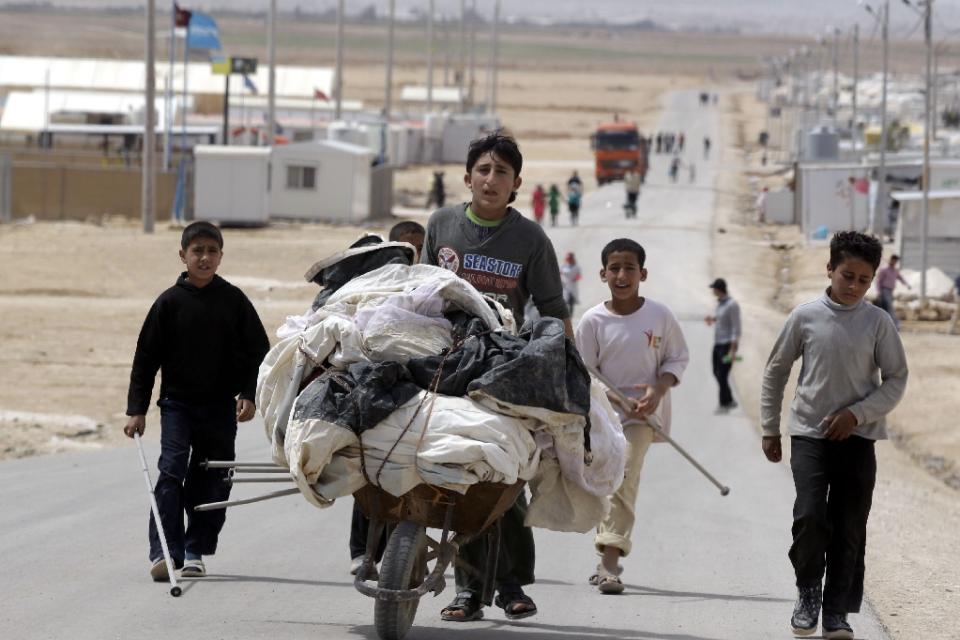
The British government announced £1.2 billion (1.6 million euros, $1.74 billion) in aid for war-torn Syria and its neighbours on Thursday, ahead of a donors' conference in London.
"More money is needed to tackle this crisis and it is needed now," Prime Minister David Cameron said in a statement announcing the pledge, which will fund education, jobs and humanitarian relief in Syria, Jordan, Lebanon and Turkey.
The promise amounts to an extra £1.2 billion, to be spent between 2016 and 2020, to address "the world's biggest humanitarian crisis", Cameron's office said. Britain has already agreed to spend £1.12 billion on the region.
It comes as world leaders are due to gather in London to try to raise $9 billion for the millions of Syrians affected by five years of civil war and to address an acute refugee crisis.

A paramedic treating an elderly man who had fallen over on a London street received a shock when former Manchester United star David Beckham stopped by with tea and coffee.
Ms Catherine Maynard said that she had been waiting for an ambulance with the man when Beckham walked past, before returning 10 minutes later with hot beverages for the pair.
"I was waiting with my patient for an ambulance to transfer him to hospital and although I was keeping him warm, it was very cold outside," she told the Evening Standard newspaper.
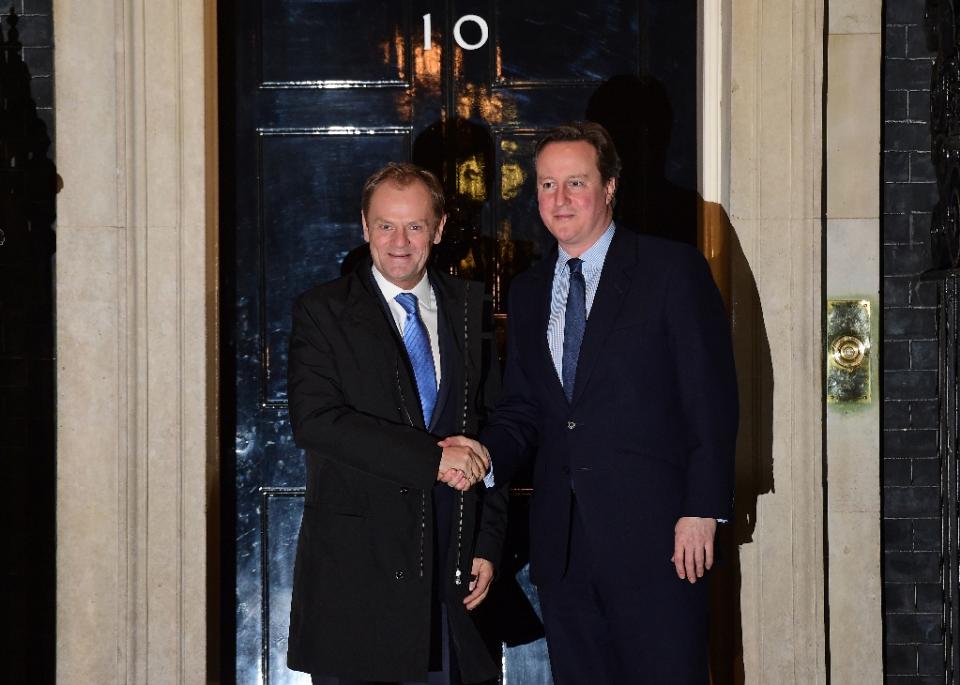
No deal was reached between British Prime Minister David Cameron and European Union President Donald Tusk Sunday in talks to agree changes to Britain's membership of the bloc ahead of an in-or-out referendum.
No deal yet. Intensive work in next 24 (hours) crucial," Tusk wrote on Twitter following a working dinner of salmon, beef and vegetables in Cameron's Downing Street office in London.
Cameron is pushing to exclude European Union migrants from benefits such as income top-ups for low-paid workers until they have paid into the British system under a so-called "emergency brake" system.
A spokeswoman for Cameron said that "much progress" had been made since a Friday meeting with European Commission chief Jean-Claude Juncker.
The Commission has indicated that Britain's "circumstances meet the criteria for triggering the emergency brake" -- which would require countries to argue that their welfare system was under strain.
"This is a significant breakthrough, meaning the prime minister can deliver on his commitment to restrict in-work benefits to EU migrants for four years," the spokeswoman said.
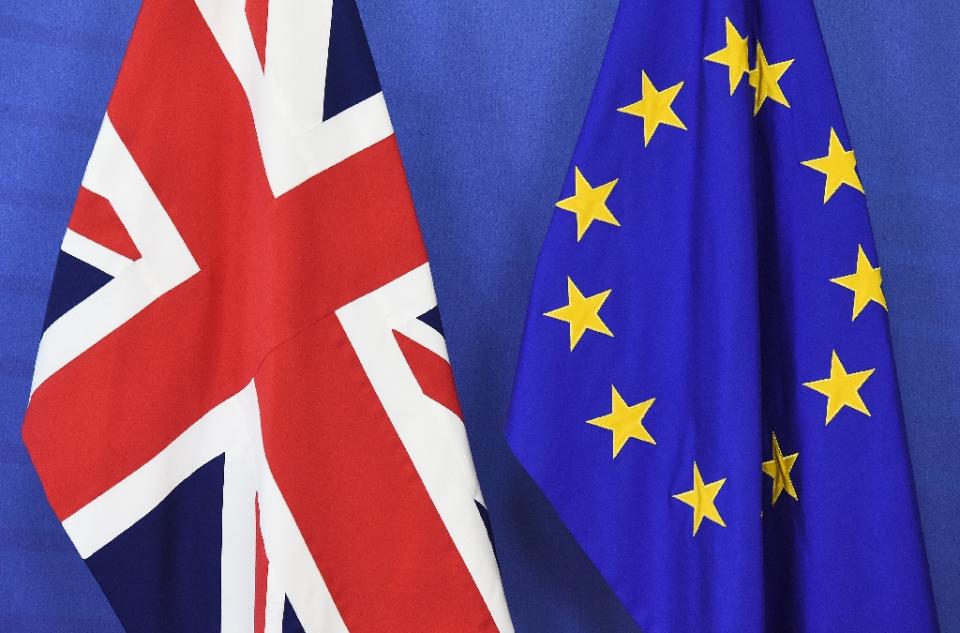
Prime Minister David Cameron was to meet EU president Donald Tusk at Downing Street on Sunday as negotiations reach a decisive point ahead of a referendum on whether Britain should leave the bloc.
The working dinner comes with Tusk expected to publish draft proposals early this week for how to reform Britain's relationship with the EU, which Cameron can then use to campaign against a so-called "Brexit".
British officials hope that a final deal can be nailed down at a Brussels summit being held on February 18 and 19. That could then open the door to a referendum in June.
But Cameron insists he is willing to hold out for as long as it takes to secure the right package of reforms, if necessary delaying the referendum to September or even next year.
Opinion polls currently suggest that Britons would vote to leave the EU by a small margin.
Tusk's visit comes after Cameron held a hastily-arranged meeting with European Commission chief Jean-Claude Juncker on Friday to try to resolve the British leader's main concern -- reducing the number of EU migrants coming to Britain.
Tusk arrived in London on Sunday afternoon accompanied by his full negotiation team, an EU source told AFP.
"I don't expect Tusk to offer future treaty change on free movement" of people, the source said.
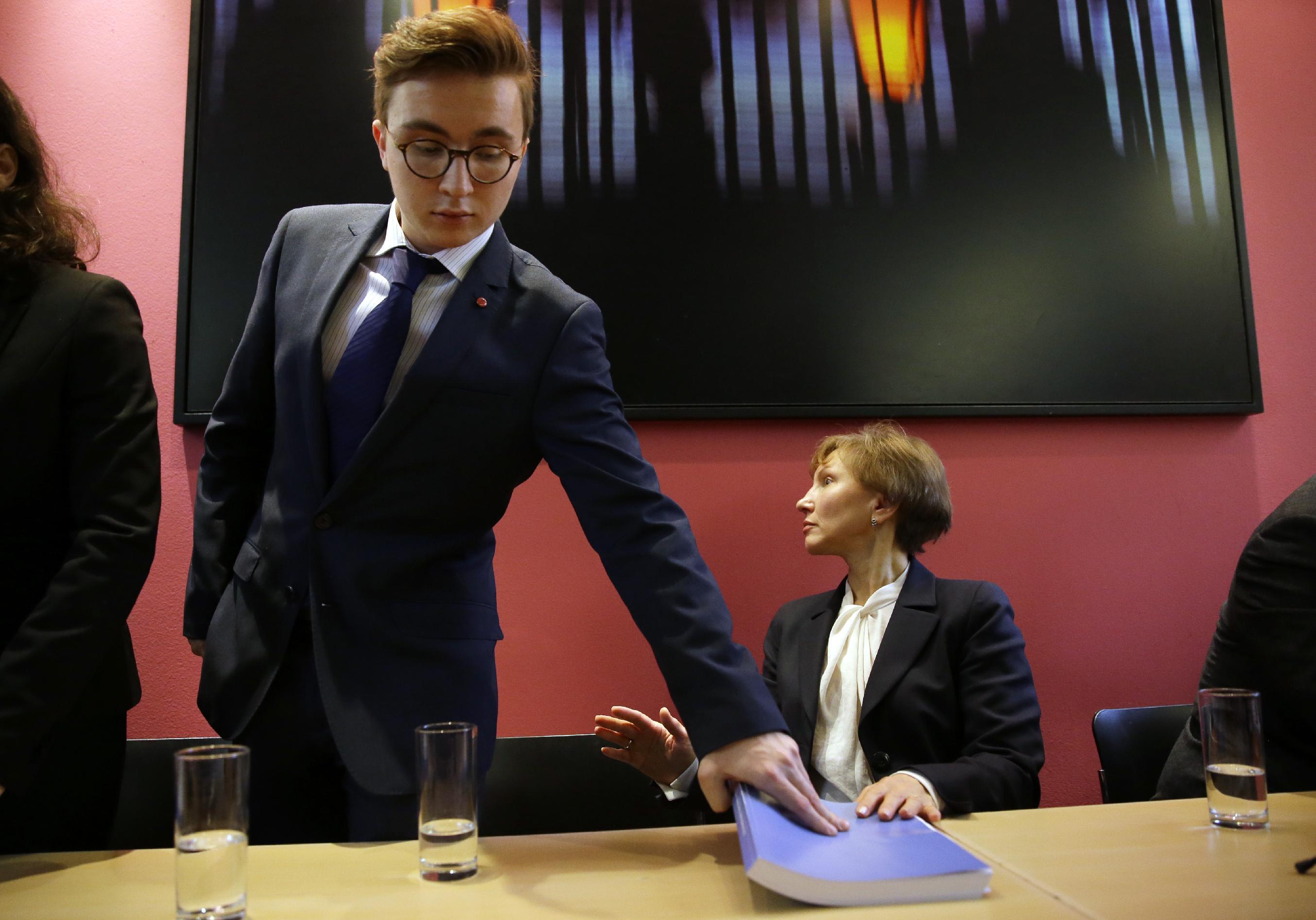
Moscow dismissed as a "joke" a British inquiry's findings that Russian President Vladimir Putin "probably approved" the killing of ex-spy Alexander Litvinenko a decade ago in London.
Litvinenko, a prominent Kremlin critic, died of radiation poisoning in 2006 aged 43, three weeks after drinking tea laced with radioactive polonium at an upmarket London hotel.
The inquiry said that Andrei Lugovoi and Dmitri Kovtun, two Russians identified as prime suspects by British police, were likely to have carried out the poisoning on the instructions of the Russian security services, but Lugovoi quickly dismissed the allegations as "nonsense".
Although Prime Minister David Cameron called it a "state-sponsored action", his government did not announce sanctions in response, instead summoning Moscow's ambassador to London for talks lasting less than an hour.
Russia was sharply dismissive of the conclusions.
"Maybe this is a joke," Putin's spokesman Dmitry Peskov said. "More likely it can be attributed to fine British humour -- the fact that an open public inquiry is based on the classified data of special services, unnamed special services."
Lugovoi, meanwhile, told the BBC that the inquiry had reached "nonsense conclusions" and said the judge leading it "has clearly gone mad".
"I saw nothing new there," he said. "I am very sorry that 10 years on nothing new has been presented, only invention, supposition, rumours."
- 'Acting for state body' -
At the High Court in London on Thursday, there were cries of "Yes!" as the main findings were read out.
Litvinenko's wife Marina, dressed in black and accompanied by her 21-year-old son Anatoly, embraced supporters afterwards.
She has spent years pushing for a public inquiry and had urged sanctions and a travel ban on Putin.
"I'm very pleased that the words my husband spoke on his deathbed when he accused Mr Putin of his murder have been proved true in an English court," she said.
Judge Robert Owen, the inquiry's chairman, said he was "sure" Lugovoi and Kovtun placed polonium-210 in a teapot at the Millennium Hotel's Pine Bar, where they met Litvinenko on November 1, 2006.

















